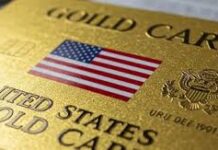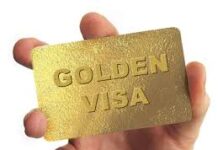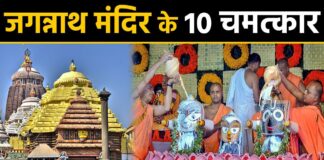A Guide to the United States’ History of Recognition, Diplomatic, and Consular Relations, by Country, since 1776: Antigua and Barbuda The United States has enjoyed friendly relations with Antigua and Barbuda since its independence within the British Commonwealth of Nations in 1981. Because Antigua and Barbuda’s location near maritime transport lanes, the U.S. Virgin Islands and Puerto Rico make it an attractive site for international drug trafficking, the United States and Antigua and Barbuda established a series of counter-narcotic and counter-crime treaties and agreements in the 1990s.

Recognition
U.S. Recognition of Antigua and Barbudan Independence, 1981.
Antigua and Barbuda became an independent state within the Commonwealth of Nations on November 1, 1981, with Queen Elizabeth as the first Queen of Antigua and Barbuda and Right Honourable Vere Cornwall Bird as its first prime minister. The United States recognized Antigua and Barbuda as an independent state on the same day, when it raised the Consulate General in St. Johns to Embassy status.
Diplomatic Relations
Establishment of Diplomatic Relations and the American Embassy in St. Johns, 1981.
The United States established diplomatic relations with Antigua and Barbuda on November 1, 1981. Paul Byrnes was Principal Officer when the Consulate General in St. Johns was raised to Embassy status. Ambassador Milan D. Bish presented credentials on January 8, 1982 and was resident at Bridgetown, Barbados.
American Embassy at St. Johns Closed, 1994.
The American Embassy at St. Johns was closed June 30, 1994. Subsequent Ambassadors to Antigua and Barbuda remained resident at Bridgetown, Barbados. The United States maintained a consular presence in St. Johns to assist American citizens.
Fair Antigua and Barbuda
We thy sons and daughters stand
Strong and firm in peace or danger,
To safeguard our native land:
We commit ourselves to building
A true nation, brave and free!
Ever striving, ever seeking
Dwell in love and unity.
Raise the standard! Raise it boldly!
Answer now to duty call:
To the service of your country,
Sparing nothing giving all!
Gird your loins and join the battle
Against fear hate and poverty:
Each endeavoring, all achieving,
Live in peace where man is free!
God of nations, let thy blessing
Fall upon this land ours
Rain and sunshine ever sending
Fill her fields with crops and flowers:
We, her children do implore thee:
Give us strength, faith, loyalty:
Never failing, all enduring
To defend her liberty.
Each of the Antigua and Barbuda hoidays and festivals celebrates important aspects of the islands’ life and culture, from Antigua Sailing Week to the Cricket Festival. However, no party on the islands is louder or larger than Carnival, which commemorates the 1834 abolishment of slavery on the island with live calypso music, vibrant parades, and colorful costumes.
Wadadli Day
This annual celebration of Antigua and Barbuda’s culture takes place each February at St John’s Botanical Gardens, whose trees provide shade during the festival’s warri games (a board game of strategy), whose past participants have the prime minister. The Wadadli Day parade ends at a bustling outdoor fair where food, drinks, and handmade crafts are sold to the background of live dancing and music.
A & B International Kite Festival
Each Easter weekend, thousands of colorful cloths soar above the sunny skies of Antigua and Barbuda during this annual kite festival, when island residents of all ages make and fly kites to mark the beginning of spring.
Annual Seafood Festival
Seafood lovers will not want to miss this annual feast of freshly caught fish and crustaceans at Urlings Wharf each April. This festival, first founded to promote Antigua and Barbuda’s fishermen and vendors, has grown into a much larger event complete with craft booths and live musical performances. Children have their own fishing competition and bouncy castle, while visitors of all ages can take relaxing boat rides around Carlisle Bay or watch the exciting mango-eating competition.
Antigua Sailing Week
Only 10 boats entered the first Antigua Sailing Week in 1967. Today, this annual race off Antigua’s southern coast attracts more than 200 vessels. Antigua Sailing Week, held between late April and early May, is one of the world’s most prestigious sailing regattas and a week-long celebration filled with live music and lively stories shared each afternoon at happy hour at the Nelson’s Dockyard. The event also includes a formal black tie ball and a separate competition for ocean-racing boats.
Antigua Carnival
Antigua’s Carnival, like its counterparts throughout the Caribbean, is a 10-day celebration filled with vibrant costumes, parades, calypso music, and plenty of partying. However, the people of Antigua have another reason to celebrate as Carnival also falls upon the anniversary of the day slavery ended on Antigua and Barbuda in 1834. Carnival lasts from late July to early August.
Antigua and Barbuda International Cricket Fest
Cricket may be Antigua and Barbuda’s national sport, but no match on the islands can rival the size of this four-day November event attracting Masters level teams from around the world. Afternoon coaching sessions take place prior to this elite event, which is accompanied by lively music and homemade meals of barbecued chicken, peas, and rice.
Independence Day
Ever since Antigua and Barbuda became independent from Great Britain on November 1, 1981, the islands have marked the day with noisy celebrations filled with chiming church bells and blaring sirens. All government buildings and schools are decorated bright yellow and red during the two weeks prior and the streets are filled with parades, music, food fairs, and galas for at least a week before.







[…] is known most for its recent political history. Invaded in 1983 by a joint Caribbean-US military task force, the raid was ordered after human […]
[…] coca-cola and ice-cream every day. He said in an interview with Fortune that he is”one-quarter Coca-Cola. If I eat 2700 calories a day, a quarter of that is Coca-cola. I drink at least five 12-ounce […]